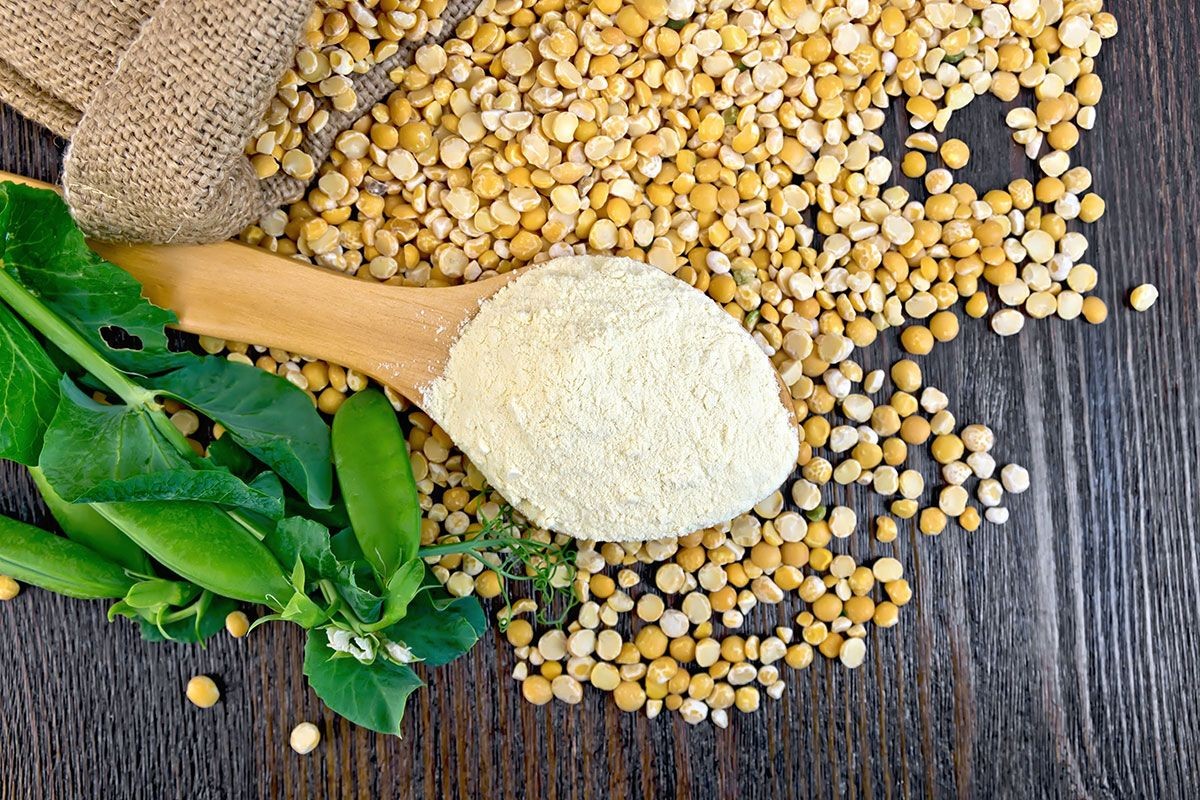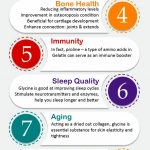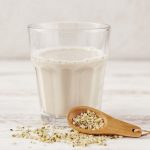
Contents
Is Pea Protein Healthier Than Soy?
Pea protein, derived from yellow split peas, is a valuable dietary protein source. While many people rely on animal protein, plant-based proteins like pea and soy are becoming more popular.
Pea and soy proteins both come from plants, making them more similar to each other than to animal proteins. However, there are still distinct differences between these two products.
What is pea protein?
Pea proteins are essential building blocks for your body, composed of smaller molecules called amino acids. Pea proteins are extracted from whole peas and come in three main forms:
- Pea protein isolates: Purest form of pea protein, containing mainly proteins and broken-down amino acids.
- Pea protein concentrates: Less filtered products that include pea protein, carbohydrates, and fats.
- Textured pea protein: Unprocessed pea protein used as a meat substitute in commercial products.
To extract pea protein, peas are ground and filtered to remove proteins, fats, and carbohydrates. The resulting product is sold as pea protein concentrate, which undergoes further filtration to create pea protein isolates.
Pea protein is used in various foods, including energy bars, meal replacement shakes, and veggie burgers. It also adds structure and texture to vegetarian foods.
What nutrients are in pea protein?
Pea protein products contain varying amounts of nutrients, depending on the processing methods used. While whole peas contain numerous nutrients, refining them into pure protein removes many micronutrients and minerals.
Fiber, a beneficial ingredient, can be found in some pea protein products. Additionally, pea proteins contain all nine essential amino acids, but they are low in methionine. To compensate, incorporate other protein sources rich in methionine into your diet.
When choosing a pea protein product, carefully review the nutrition label to ensure it meets your nutritional needs.
How does pea protein compare to soy protein?
Pea and soy proteins are similar plant-based protein sources, but pea proteins are easier to digest. Soy products also come in concentrate and isolate forms and have neutral flavors, often resulting in creamier textures compared to pea protein.
Unlike soy products, pea protein does not contain chemicals similar to estrogen. This distinction makes pea protein a healthier choice.
QUESTION
Who should use pea protein?
Pea protein offers several benefits:
- Building muscle: Pea protein isolates, with their high concentration of pure protein, are ideal for enhancing muscle growth and strength alongside resistance training.
- Losing weight: Pea protein concentrates, with a balanced array of nutrients, can help suppress appetite when taken 30 minutes before meals or used as meal substitutes.
- Watching your health: Incorporating plant proteins like pea protein into your diet reduces reliance on red meat, lowering the risk of certain health problems. Pea protein may even help lower blood pressure.
Pea proteins are suitable for vegetarian, vegan, and individuals with common food allergies, including soy, milk, eggs, fish, wheat, shellfish, and peanuts or tree nuts.
How much pea protein should you eat?
The recommended daily protein intake varies depending on factors like age, sex, and physical activity level. On average, adult females should consume around 46 grams of protein per day, while adult males should aim for around 56 grams.
Pea protein supplements typically contain 10 to 30 grams of protein per scoop, so it’s important to combine them with a balanced diet. Incorporate various protein sources and include fruits and nuts to ensure a diverse nutrient intake.
Sources:
American Institute for Cancer Research: “Pea protein is everywhere, is it healthy?”
Cleveland Clinic: “Everything You Should Know About Pea Protein.”
Clinical Reviews in Allergy and Immunology: “Clinical spectrum of food allergies: a comprehensive review.”
Foods: “Amino Acid Composition of an Organic Brown Rice Protein Concentrate and Isolate Compared to Soy and Whey Concentrates and Isolates.”
Harvard Health Publishing: “Confused About Eating Soy?” “The hidden dangers of protein powders.”
Journal of Agricultural and Food Chemistry: “Blood pressure lowering effect of a pea protein hydrolysate in hypertensive rats and humans.”
Journal of the International Society of Sports Nutrition: “Pea proteins oral supplementation promotes muscle thickness gains during resistance training: a double-blind, randomized, placebo-controlled clinical trial vs. whey protein.”
Nutrition Journal: “Effect of different protein sources on satiation and short-term satiety when consumed as a starter.”
Sports Medicine: “The effects of protein supplements on muscle mass, strength, and aerobic and anaerobic power in healthy adults: a systematic review.”
Sports Medicine: “The effects of protein supplements on muscle mass, strength, and aerobic and anaerobic power in healthy adults: a systematic review.”


